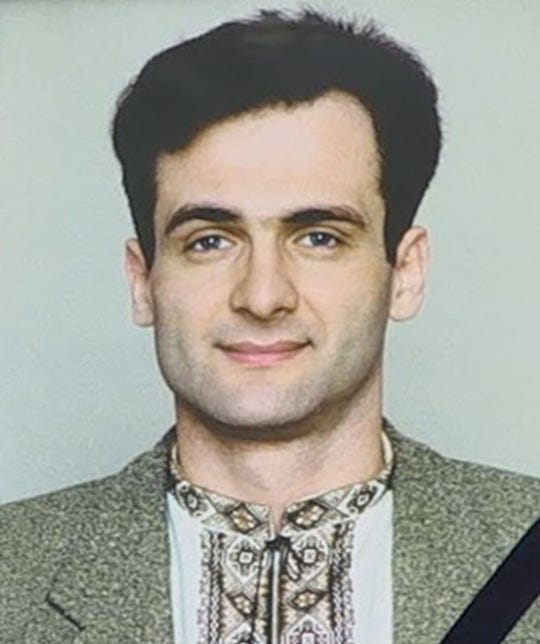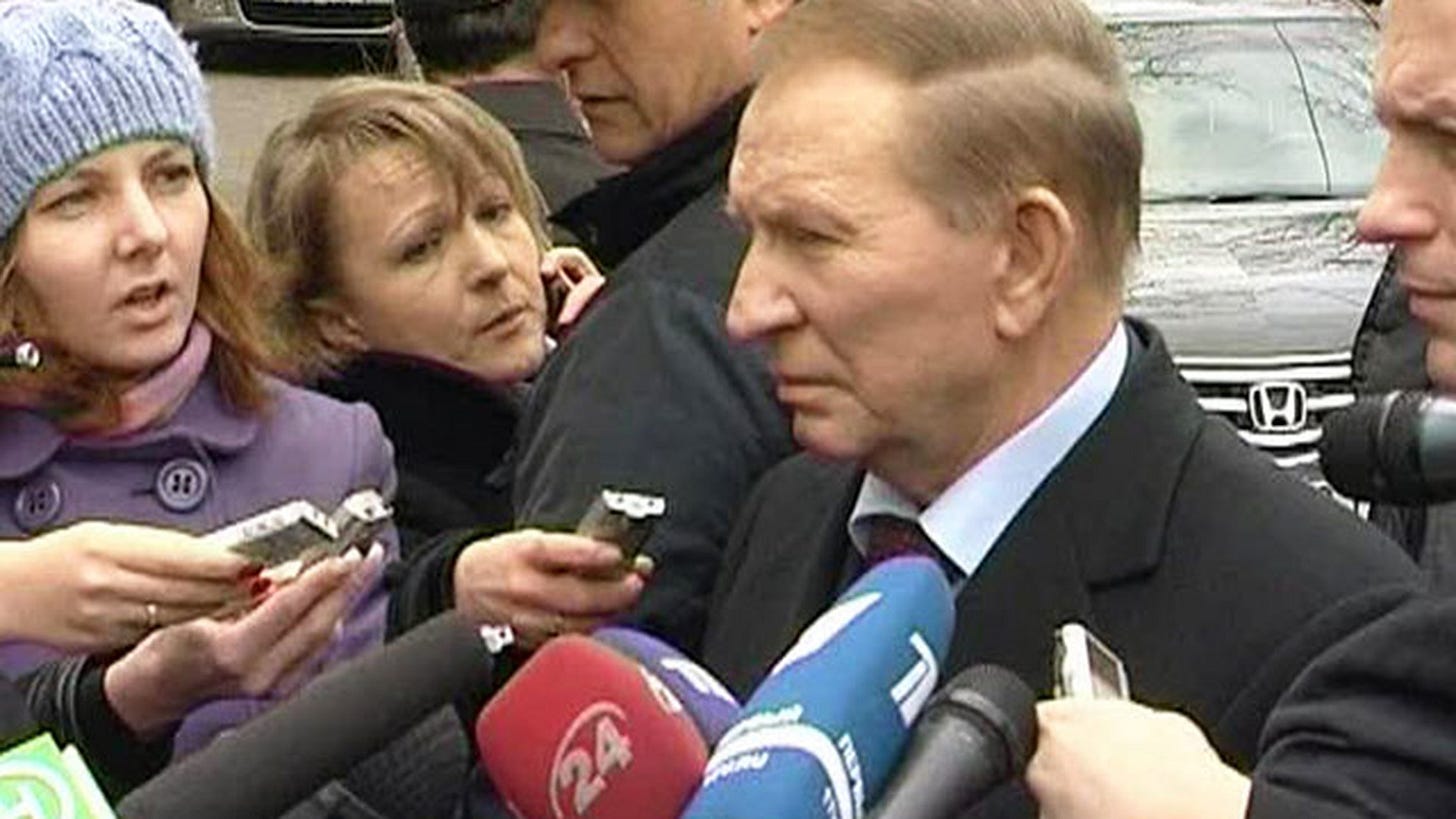Gongadze - The Domino That Decided the Fate of Ukraine
His murder set many events into motion.
You have to admit, Ukraine has had an action-packed 30 years of existence as a so-called sovereign state.
In that time, a lot of bad stuff happened, a lot of bad (and good) people were killed and a lot of hard times were had. Like all people do, Ukrainians formed a very particular and idiosyncratic view of their own tumultuous recent history, focusing on certain aspects, forgetting others, and putting it all in a special emotional context which formed the national meta-narrative going forward.
Today we will discuss a name hardly mentioned in the media anymore, but whose actions and death led us to this war, toppling domino style.
This story is worth getting to know to put yourself in the shoes of an in-the-know Ukrainian identitarian’s mind.
I’m not talking about Banderaites here, mind you. These people exist, but their importance and relevance is overinflated by crass and counter-productive Russian propaganda. There are many strands of anti-Russian thought in Ukraine and the Bandera and Azov brands were very niche for many years. This is an article about the more popular and socially widespread strain of Ukrainian discontent and why and how it developed. I realize that what I am trying to convey here is a bit unclear, but just read on and it will start to make sense. Basically, there was a far more mainstream anti-Russia narrative that was built around these events that didn’t involve Roman salutes.
You won’t regret the time you sink into this story because it has everything: murder, intrigue, conspiracy, you name it.
Enjoy!
**
We start our story with the lurid drama surrounding the life and murder of Georgiy Gongadze.
Gongadze was a Georgian-Galician and an obscure journalist who was trying to report on the corruption inside the government of Ukraine, particularly about the shady privatisation practices of the then-president of the country, Leonid Kuchma.
Basically, Kuchma was wading knee-deep in the blood of the post-Soviet looting operation to take over formerly nationalized industries and resources, same as all the other post-Soviet politicians and oligarchs and gangsters operating on the territories of the FSU at the time.
“Politics” as we conceive of them in the West simply did not exist in this period. There were no grand ideological debates between political parties and the like. “Politics” meant gangsters vying to get into positions of power with the express goal of using what was left of the apparatus of the state to defend one’s ill-gotten gains and to then go after rival enemy gangs. In other words, politics in the FSU was just like politics in the West, but without the nice veneer hiding the hidden workings of what politics is really about.
Nothing about politics has changed since the time of the ancients, really. We must learn to look deeper and draw lessons from the past.
Perennial politics. Patterns. Archetypes …
What I’m trying to say is …
Similarly, journalism in this period was revealed to just be mercenary work. Rival gangs hired journalists to go after their opponents in the arena of public relations, and there was plenty of mud to throw around, so we gradually learned with each new revelation that basically all of the gangsters in power operated pretty much the same way. They all had blood on their hands, offshore accounts, married their kids off to ethnic psychopaths and so on.
Anyways, Gongadze started a newspaper called Ukrainskaya Pravda (Украинська правда) and there’s evidence to believe that this resource was funded by the American spook state through the USAID program. Despite their deep-pocketed donors, it was not particularly popular at the time when the following events unfolded. Their work attracted Kuchma’s attention who got annoyed with Gongadze’s writings and got his goon squad (the police and the spooks) on the newspaper’s case. After a period of harassing the paper and Gongadze personally, Kuchma decided to turn things up a notch.
Here’s where the story transforms into the equivalent of a Hollywood style political thriller movie.
First, Gongadze disappears. Then, a conversation between Kuchma and his interior minister that was recorded by a bodyguard surfaces. This is referred to as the Cassette Scandal. And this one event probably had the greatest affect on Ukraine’s post-Soviet development - nothing else comes close. But the fallout from the tapes is largely misunderstood because of the counter-intuitive effect that they had on Ukraine’s development going forward. We will return to this point later.
But only if you sign up for a paid subscription.
Unlike Gongadze, I don’t have spook money funding this blog. Just you guys. Don’t be complaining about media bias or whatever if you ain’t gonna put up the dough for people like myself trying to give you the real story. Do you know how many English-speaking people are willing to forgo ever having a family, a house, and all the trappings of middle-class life to wander around the world in cheap flip-flops while blogging? And of the people who are willing to live that lifestyle, how many are worthless hippies with nothing interesting to say whatsoever?
Yeah, I thought so. I’m basically all you got, sorry.
By the way, my poor mother calls me up periodically, sobbing that I’ve thrown my life away just to write edgy things on the internet.
“Mooooom, you don’t get it!” I whine at her. “I’m fighting the globalists! Someone’s gotta do it! I’m, like, totally changing the world and shit!”
This only causes her to cry even harder.
So, sign up and send me money or my mom will never stop crying and thinking she failed me as a parent.
Thank you.






